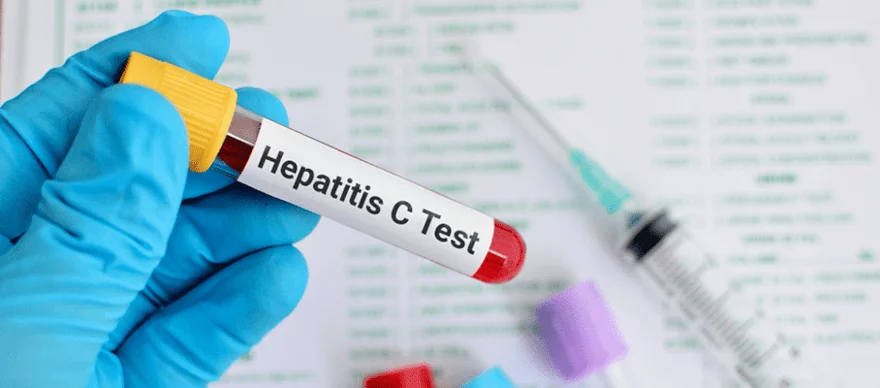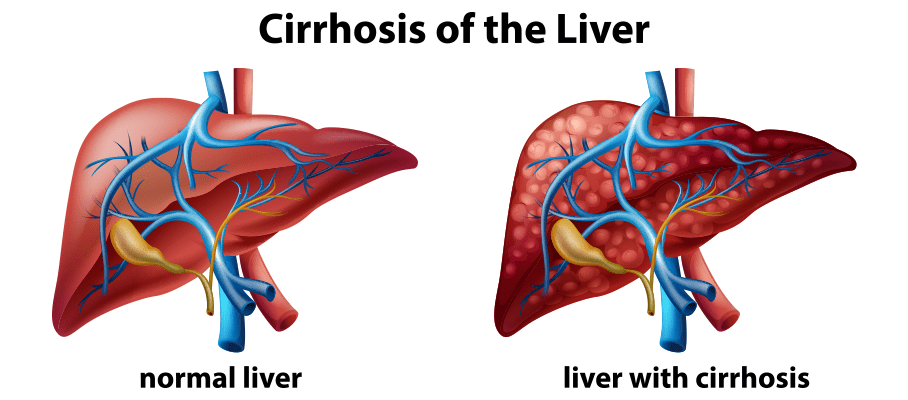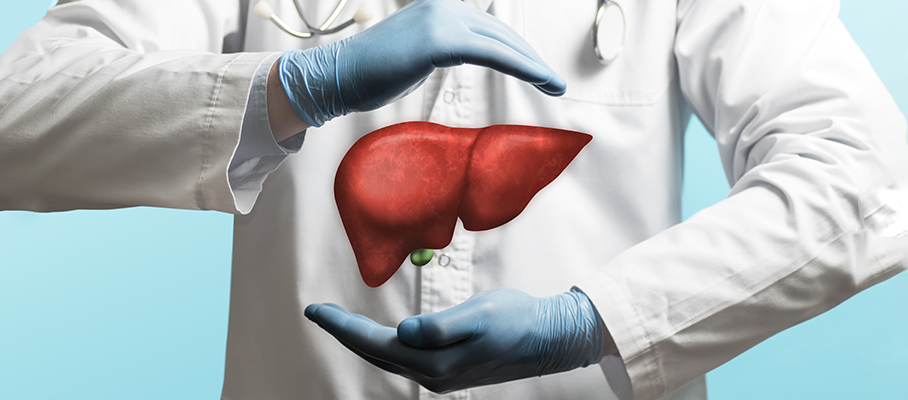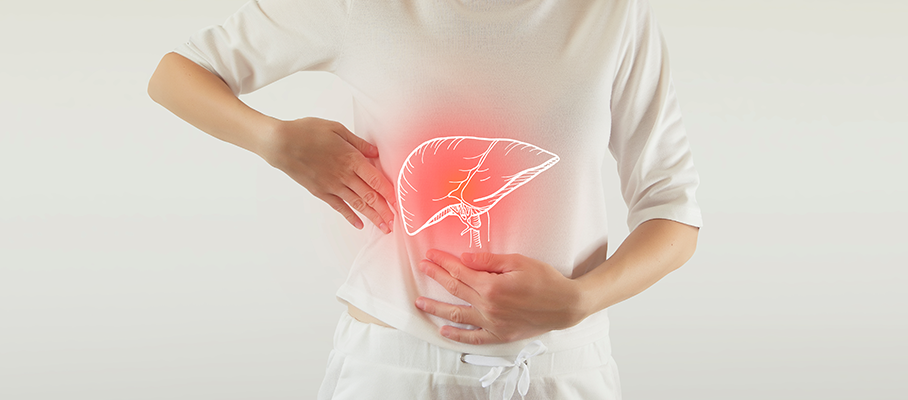Latest Blogs
4 Signs Your Liver is in Trouble and How You Can Help
Your liver is one of the vital organs that help perform several life-sustaining processes. From breaking down food to detoxifying the body, your liver goes a long way in keeping your body function at its best. But, not many people are aware of the importance of liver health. In fact, health experts say liver symptoms are often unnoticed and very few people seek help on time. Thinking that you might also have ignored your liver until now? Well, there is some relieving news! Your liver allows you to arrest, and even reverse the damage in most conditions. The first step towards keeping your liver health intact is to get a liver function test and see how well your liver works. Book a test here. Let us get you aware of some of the signs that can tell if your liver is in trouble: 1. Pale-colored or clay-colored stool: The normal color ofstools range from brownish to yellowish brown in most people. It is given the dark colour by the bile salts that the liver normally releases. If your stool color has changed to pale or clay color, the liver might be facing some troubles. Clay-colored stools can indicate that you could have a liver infection that has decreased bile production, or flow of bile out of the liver is obstructed. 2. Fluid retention: This is the most common sign of liver disease. About 50 percent of people who have liver cirrhosis, a condition in which scar tissue replaces healthy liver tissue, experience fluid retention. This fluid can cause distension in your abdomen or even swelling in the legs. 3. Jaundice Bilirubin is a pigment that forms when red blood cells break down, passes through the liver, gets converted into bile, and is excreted through the body via stool. However, when bilirubin builds up in your bloodstream, it can cause yellowing of skin, eyes, and urine, called jaundice. One of the main causes of jaundice is a damaged liver due to viral hepatitis or excessive alcohol consumption. 4. Confusion: Your liver helps remove toxins from the body. If the liver is under trouble and not functioning well, it may be unable to filter the toxins, which can travel to your brain. This results in a condition called hepatic encephalopathy and leads to memory problems and confusion. Apart from these, nausea, vomiting, pain in the abdomen, chronic fatigue are some of the other common symptoms that can give hints about an unhealthy liver. Simple things you can do to avoid liver disease: Eat a healthy diet that is low in sugar and processed foods. Choose fruits, vegetables and high-fiber foods instead. Avoid junk food that is overly oily and spicy. Drink alcohol in moderation. Each time your liver filters alcohol, some of your liver cells die. Drinking too much alcohol over many years can reduce your liver’s ability to regenerate. This can lead to permanent liver damage. In fact, if you can quit altogether- even better! The best part about quitting alcohol is that alcohol-caused fatty liver is a reversible health condition. Maintain a healthy weight. Studies show that losing 10 percent of your weight causes liver enzymes to improve. This correlates with a decrease in the liver inflammation caused by the extra fat. Opt for a low-sodium diet. It may help alleviate mild fluid retention. Keep yourself physically active. Exercise at least five times a week for at least 30 minutes each time. It helps decrease adverse cellular processes and keeps your liver going. Do not ignore health symptoms. If you feel any discomfort, reach out to your doctor proactively. Keep taking liver function tests regularly, at least once in a year even if you are absolutely healthy. This helps identify any liver related condition early on and start the treatment. Always opt for protected sexual activity. Unprotected sex can increase chances of getting hepatitis B, a sexually transmitted infection. One can also get it from contaminated needles and syringes. It can also be commonly passed on from a mother to her baby during birth.
Hepatitis Treatment and Types - Signs, Symptoms, and Causes
Hepatitis is a condition that refers to the inflammation of the liver, which is a large organ located on the right side of your belly. The liver is a vital organ that filters blood in your body and breaks down toxic and external substances, such as alcohol and medicines. It also produces bile, which helps in the digestion of fats and takes away the waste. Symptoms: How do you know if you have hepatitis? Hepatitis can be acute or chronic. While chronic forms might continue damaging the liver without giving any signs at the beginning or very subtle signs if at all, acute inflammation of the liver causes signs and symptoms to appear quickly. Symptoms of hepatitis include: Pain in the abdomen Loss of appetite Unexplained weight loss Signs of jaundice like yellow skin and eyes Fatigue and malaise Dark urine Pale stool Think your unhealthy eating practices are putting you at risk of developing liver problems? Do not wait for symptoms to show, keep a check on your liver health with a liver function test. Book here. Causes: What can give you hepatitis? Most cases of hepatitis are caused due to a viral infection. There can be other possible causes of liver inflammation too, such as autoimmune hepatitis, alcohol, illicit drugs, and certain medicine. Autoimmune hepatitis means your body is making antibodies against your liver tissue. Viral infections of the liver: Viral hepatitis can be of 5 types depending on the different types of viruses that are responsible for its transmission, namely hepatitis A virus (HAV), hepatitis B virus (HBV), hepatitis C virus (HCV), hepatitis D virus (HDV), and hepatitis E virus (HCV). Hepatitis A: Hepatitis A virus (HAV) is most commonly transmitted by consuming food or water contaminated by feces from a person infected with hepatitis A. Hepatitis B: Hepatitis B virus spreads through contact with body fluids, such as blood, vaginal secretions, or semen, infected with HBV. Sexual act with an infected partner, injection drug use, or sharing razors with an infected person puts you at risk of getting hepatitis B. Hepatitis C: Hepatitis C virus is contracted in ways similar to HBV- through direct contact with infected body fluids via injection drug use and sexual contact. Hepatitis D: Hepatitis D virus is transmitted through direct contact with infected blood. It is noteworthy that hepatitis D only occurs in conjunction with hepatitis B infection since the HDV cannot multiply in absence of HBV. Hepatitis E: Hepatitis E virus spreads through contaminated water. It is prevalent in areas with poor sanitation. Noninfectious hepatitis: Alcohol: Alcohol is a major determinant of liver health. Excessive alcohol consumption can cause liver damage and inflammation often called alcoholic hepatitis. Other causes: Overuse or overdose of certain medications and exposure to poisons can also damage your liver cells. Autoimmune disease: Your body’s defense system mistakenly damages the liver cells. This results in ongoing inflammation, often interfering with liver function. Tests for hepatitis: How is hepatitis diagnosed? First and foremost, your doctor will examine you to take a medical history and understand your symptoms. Along with the physical examination, you may be advised to undergo certain tests to confirm the condition. Liver function tests: A liver function test is a simple blood test. It checks the most basic parameters that tell how efficiently your liver works. Any abnormality in the results serves as the first-level indication of a problem, much before the symptoms appear. Ultrasound: An abdominal ultrasound allows your doctor to take a close look at the internal images of your liver and nearby organs. This can reveal internal signs like fluid in your abdomen and liver enlargement, that are otherwise difficult to be diagnosed. Other blood tests: Your doctor might also recommend blood tests other than liver function tests to identify the source of the problem. While some tests can check for the hepatitis viruses, a few look for antibodies commonly found in autoimmune hepatitis. Liver biopsy: This is a procedure in which a sample of tissue is taken from your liver and tested for any abnormality. Please note that biopsy does not require surgery. Treatment: How is hepatitis treated? Your treatment options will be determined by the type of hepatitis you are affected with and whether the infection is acute or chronic. Hepatitis A: It is a short-term illness and generally does not require treatment. The condition is self-limiting with adequate bed rest, optimum hydration, and nutritious food. Hepatitis B: No specific treatment is needed for acute cases. You will get antiviral medicines for chronic hepatitis B. It can be continued for several months or years. Hepatitis C: Antiviral medicines will be required to treat both acute and chronic forms of hepatitis C. Those people who develop liver scarring (cirrhosis) due to chronic hepatitis C might need a liver transplant as well. Hepatitis D and E: Specific antiviral agents do not exist for the treatment of hepatitis D as yet. Hepatitis E might also resolve on its own without needing any specific medical treatment. Autoimmune hepatitis: Early treatment includes corticosteroids, such as prednisone or budesonide. They have been found to be beneficial in around 80% of people affected with this condition. In addition to steroids, other drugs that suppress the immune system might also work. These medicines include azathioprine, mycophenolate, tacrolimus, and cyclosporine. Alcoholic hepatitis: Liver inflammation caused due to excessive alcohol consumption is usually reversible with complete cessation of drinking. Medical therapies can help ease the signs and symptoms of liver damage. However, if the liver damage is severe, it cannot be reversed and is life-threatening. The Final word You can protect your liver against hepatitis by taking certain precautions. Vaccination against hepatitis A and B can be the easiest way to guard against infectious viruses. Practice safe sex and say no to alcohol. Make sure to show extra care to this vital organ through regular lab tests and medical evaluation. Looking to book health tests and home sample collection? End your search with Metropolis home visit service.
How to Keep Liver Healthy - 6 Essential Tips & Care
Our liver plays a vital role in our body’s digestive system. Whatever we eat or drink, including medicines, almost all of it passes through the liver. Therefore, we need to treat our Liver right, so that it can stay healthy and do its job effectively. Amid the hectic schedule, it is quite easy for most of us to forget to pay our liver the attention that it rightly deserves. The liver, situated under the lower ribcage on our right side, is responsible for getting rid of harmful chemicals to cleanse the body, producing liquid called bile which is required for breaking down all the fat from our food. Most importantly it stores glucose which gives us energy to carry out our daily activities. The liver is the only organ in our body that can regenerate itself; a person can donate a part of their liver to another person. This article will provide you with insights that can help lower the risk of liver problems and eventually other vital organs as well. Major Liver problems include infectious conditions like Hepatitis A, Hepatitis B, Hepatitis C, and liver damage caused due to excessive alcohol consumption, like fatty liver disease and cirrhosis. Liver failure and liver cancer are fatal diseases that can be caused due to multiple causes, with most cases associated with liver damage and scarring of the liver. All such problems can adversely affect the normal and healthy functioning of the liver, thus proper care and caution is essential when it comes to keeping the liver in good health 6 ways to keep the liver problems at bay: Limit your alcohol intake Our liver and body can usually cope up with consuming only a certain amount of alcohol.As per the guidelines, men should not go for drinking more than 2 drinks a day and women should limit themselves to just one drink a day. One "standard" drink contains roughly 14 grams of pure alcohol. For example, around 12 ounces of regular beer. But if you continue to drink more than what your liver can take, it will affect the liver cells; they will not be able to process it and this can lead to liver damage, leading to permanent scarring of the liver. If you continue with excessive drinking, it might cause liver failure too. Get a Liver Function Test regularly Liver function tests aka Liver Panel, is a simple blood test that can be taken to measure different enzymes, proteins and all other substances that our Liver produces. This simple blood test can reveal much information about your liver health and may be an early indication of liver disease. This allows you to take action in time. Exercise regularly Though this is something which is important for preventing most lifestyle diseases, we never tend to take this seriously. This helps keep our weight under control, and prevent excess fats from getting stored in our body. Regular exercise can help keep non alcoholic fatty liver disease at bay, a severe condition that can lead to cirrhosis if not taken care of. If currently you are not doing any physical workout, start by doing some daily exercises and slowly and gradually move up towards increasing it to half an hour or an hour daily. Don’t go for fad diets Following trends, a lot of people go for random diet plans, weight loss pills or protein pills, without understanding the after-effects it can have. Fad diets and pills available without prescription that promise quick weight loss or weight gain might end up harming the Liver in the long run. If in any doubt what can be the perfect diet or tablets to keep the health in check, always ask a doctor or a dietician. One simply cannot stress over the fact enough that having a balanced diet is important for anyone. Try and avoid saturated fats, trans fats and hydrogenated fats as much as possible. Our culture these days is to simply have leftovers or packaged / processed foods, keep a check on that. High levels of cholesterol are identified as common causes leading to fatty liver disease. Therefore it is suggested to eat more fibrous food, like fruits and vegetables and dairy produce for a healthy liver functioning. Want to check how your diet might have harmed your cholesterol levels. Book a lab test right away. Be careful with medication We often tend to self diagnose ourselves when it comes to common cold or cough, doing so we take medicines that can affect the liver badly. By not consulting a doctor or a physician, we tend to put our health at risk. Of all the organs present in our body, the liver is most vulnerable to the harmful effects of self-medication. It acts as the main organ that detoxifies whatever medicines go inside our body. Over dose of any medicine, not consulting a doctor, taking herbal supplements can all have irreversible side effects on the liver. Thereby always check with a specialist and avoid compromising your liver health. Get vaccinated Vaccinations protect yourselves against Hepatitis A, B & C. Always consult your family doctor or physician before getting these shots. Hepatitis A can be caused due to contaminated food or water and Hepatitis B can be because of sexual contact or contaminated blood and needles. Remember prevention is better than cure The liver is wonderfully created to perform countless functions for our body. It protects and nurtures our body every day, from getting rid of toxins, giving the body the desired energy, fighting viruses and other infections to maintaining mineral and vitamin supply in our body. All of these are not possible without a healthy liver. It is a complex yet resilient organ of our body that needs to be taken care of day in and day out. Schedule that long-pending liver health test now. Book here.
5 Common Habits That Are Unknowingly Damaging your Liver’s Health
Your liver is one of the most vital organs of your body. The major role of liver is removal of toxins from the body. Anything and everything you put in the body is processed and taken care of by the liver that later is excreted. In fact, your liver can automatically replace the damaged cells thereby repairing and restoring itself. However, after a certain point of time the liver loses its ability to repair itself if one constantly indulges in habits that could be secretly damaging the liver. Here are habits that could damage the liver beyond repair. Habits which you need to give up if you want to keep your liver healthy - 1. Alcoholism - Anything that is consumed in moderation and is not regular may not harm the liver. However, excessive consumption of alcohol can damage the liver beyond repair. It leads to a condition known as Alcoholic Liver Disease. Alcoholic liver disease damages the liver, leading to a buildup of fats, inflammation, and scarring. In short, the detoxification mechanism is bound to go kaput if consumption of alcohol is not restricted or controlled in the long run. 2. Smoking - It is written on the pack of cigarettes that ‘’Smoking is Injurious to Health’. However, many of us still choose to smoke because we find it cool or to fit in with peers or have got addicted and now, it has become too hard to quit. Cigarette smoking can have numerous side effects and liver damage is one of them. While cigarette smoking does not affect the liver directly, but excessive use of nicotine-filled rolls can lead to oxidative stress, which in turn produces free radicals ultimately damaging the liver. 3. Overuse of Drugs - So you immediately pop a pill whenever you are not feeling well. Isn’t it? Excessive use of any medicine or drug can again damage your liver eventually and can lead to liver failure. The liver breaks down majority of the medicines before they are distributed to other parts of the body. Hence, if you continue to abuse it with overuse of drugs – medicinal drugs or recreational drugs, believe me it is bound to affect health. 4. Sleeplessness - So you work all day and party hard in the night by sacrificing your sleep? Or you are multi-tasking person juggling multiple responsibilities, some days at the cost of your sleep. Hold on! This might damage your liver in the long run. Studies indicate that not sleeping enough can cause oxidative stress to the liver. 5. Poor nutrition and obesity – We all love eating out at restaurants, cafes. Don’t we? Bear in mind that poor eating habits and consumption of processed and frozen foods on regular basis could be damaging your liver slowly. Poor eating habits, erratic schedules and consumption of processed/packaged/outside/fried foods can damage the liver as it leads to build up of fat and toxins, which the liver cannot get rid of easily. Wishing you a very Happy and Healthy Life. Take care. Contributed by - Huda Shaikh, a leading nutritionist, clinical dietitian and health blogger.
Transmission of Hepatitis A, B, C, D & E
India is emerging as the Hepatitis capital of the world. All kinds of hepatitis damage the liver and may lead to liver cirrhosis or even liver cancer. Blood tests help reveal the kind of Hepatitis one is suffering from and also the genotypes are tested for customised treatment.Hepatitis A & Hepatitis E is spread through contaminated water & food. Hepatitis B, C & D is spread through contact with infected blood & bodily fluids. Hepatitis B, C & D could either be transferred through a blood transfusion or sexually from an infected person. Mandatory screening of blood before transfusion has reduced the incidence of Hepatitis B transmission through blood transfusion.What are the common symptoms of Hepatitis?There are five types of Hepatitis and all types cause liver damage. While Hepatitis A & E are spread through contaminated water and food, Hepatitis B, C and D spread via transfer of bodily fluids and blood.The most common symptoms Of all types of Hepatitis is as follows: Dark Urine Pale colored stool Fatigue Flu Like Symptoms Abdominal Pain Lack of Appetite Unexplained weight loss Yellow skin and eyes Hepatitis B, C & D are also called as silent killers since symptoms do not manifest at the early stages. Untreated Hepatitis leads to Liver Cirrhosis, Liver Failure or Liver Cancer in rare cases.
 Home Visit
Home Visit Upload
Upload


















 WhatsApp
WhatsApp